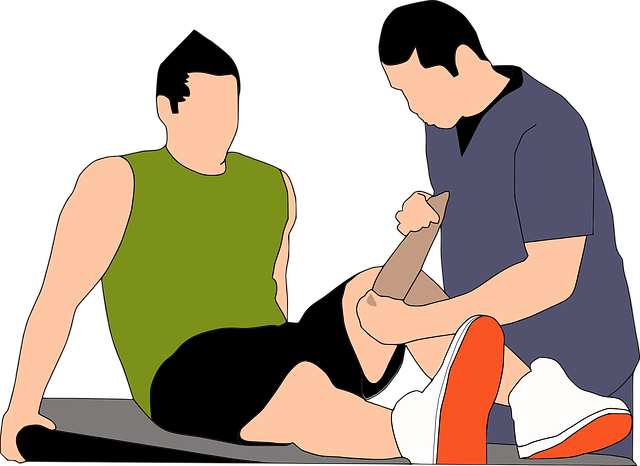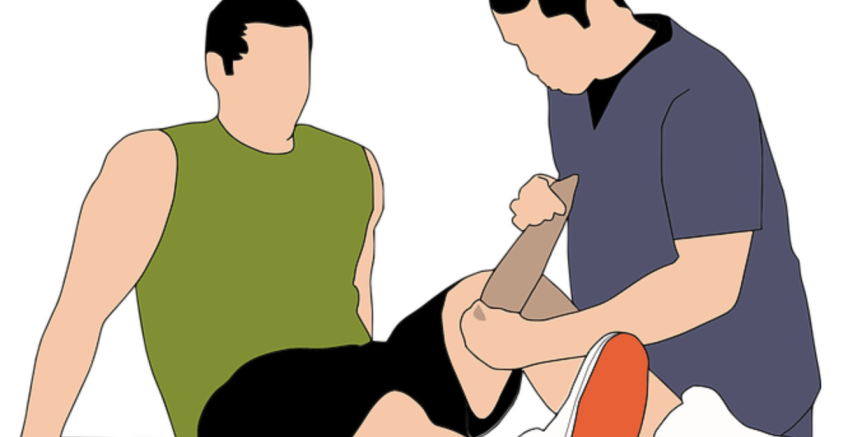Physical Therapy CEU

Physical therapy ceu’s – or continuing education units – have become a must-have for many physical therapists and physical therapist assistants. As the health care industry evolves, so too does the need to stay educated and informed in order to provide quality patient care. But with all of life’s other demands, staying up to date on the latest information can feel like an overwhelming task. That’s why understanding the basics of Physical Therapy CEUs is essential for any PT who wants to remain competitive and continue providing top-notch services.
In this article, we will explore what physical therapy CEUs are, how they benefit both patients and providers, and tips for successfully completing them. Knowing about these courses not only helps you stay ahead of the curve professionally, but also gives you that feeling of belonging within your field as you join others in these new courses and learning more about best practices in healthcare.
By taking advantage of available Physical Therapy Continuing Education Units, you can be sure your practice remains at the forefront while keeping yourself updated on trends and relevant topics impacting patient outcomes today – helping ensure no stone goes unturned when it comes to delivering exceptional service! So let’s get started by exploring exactly what Physical Therapy CEUs are…
What Are Ceu’s
CEU’s, or continuing education units, are a measure of credit given for educational activities that help professionals maintain their certifications and licenses. They’re awarded after attending a course, seminar or other approved activity related to the profession. On the one hand, CEUs allow individuals to stay up-to-date in their field; on the other hand, they provide assurance that practitioners have taken advantage of opportunities to learn new information needed to stay competitive in their chosen industry. This helps ensure both quality service from professionals as well as reduced risk due to outdated practices. With this groundwork established, we can now turn our attention to understanding why these credits are important for PT’s specifically.
Purpose Of Continuing Education

Continuing education is an important part of any professional’s career. It helps professionals stay on top of trends and developments in their field, as well as keep up with the latest research and technology. Professionals who pursue continuing education often find themselves better equipped to deal with changes in their industry, more knowledgeable about current topics, and better able to serve their clients or patients.
Physical therapy CEUs are designed to help physical therapists maintain high levels of competency and professionalism throughout their careers. They provide opportunities for additional training and development that can help them become more proficient practitioners while also expanding their knowledge base. In addition, they can be used towards license renewal requirements and may even open up new job opportunities down the line. All these benefits make pursuing a CEU certificate or program a valuable investment for any physical therapist looking to advance their career.
Benefits Of Completing A CEU Program
The benefits of completing a CEU program are like the pieces of a puzzle coming together to create a beautiful picture. Being up-to-date with the most recent advances in your field is essential for success and personal growth. Not only will you be able to stay ahead of the competition, but you’ll also gain confidence that comes from being knowledgeable about current practices.
You’ll also have access to resources such as new research and evidence-based methods hand therapy that can help you develop more effective treatment plans for patients. Additionally, by taking part in an approved continuing education course, you can sharpen your skills and learn how to better serve those who rely on your expertise. With these advantages at hand, it’s no wonder many physical therapists choose to pursue high quality CEUs!
Types Of Programs Available
CEU programs can come in various forms, so it’s important to know what type of program is most suitable for your needs. Generally speaking, there are three types of CEU programs: online courses, classroom-based seminars, and fieldwork placements. Each offers its own advantages and disadvantages depending on the individual’s learning style and career goals.
Online courses provide a convenient way to complete CEUs without leaving home or taking time off work. These often offer interactive lectures and discussions with instructors who have years of experience in the industry. Plus, these courses allow you to study at your own pace and from any location with internet access. However, they may not always be as engaging as other methods due to lack of physical interaction with peers or mentors.
Classroom-based seminars typically involve attending sessions that last up to several days. This allows participants to gain valuable insights into their chosen subject areas through direct instruction by experienced professionals. Additionally, students get the chance to interact with each other which can be invaluable networking opportunities if done properly. These courses also require students to dedicate more time than online classes but generally offer more comprehensive coverage of topics than self-paced online modules do.
Fieldwork placements are another option available for those seeking CEUs while gaining hands-on experience in their desired fields. Placements usually involve working closely with an instructor or mentor who has expertise in the topic area being studied. Participants benefit from first-hand knowledge about how things operate on a daily basis and learn the necessary skills needed for success in the workplace environment. While this option requires a great deal of commitment, it can be especially rewarding for those looking for real world application of their studies when compared to traditional course formats like exams or papers written alone at home .
With numerous options available for completing CEUs today, individuals should evaluate which approach best suits their learning style and professional aspirations before making a decision on which path is right for them moving forward. The next section will discuss the differences presented between online vs in-person courses further so readers can compare both approaches side by side before deciding which one works best for them personally.
Online Vs In-Person Courses

When considering physical therapy continuing education, many professionals prefer to take either online or in-person courses. Both offer their own benefits and drawbacks, so it’s important to understand which option is best suited for you.
Online courses are often the more convenient choice. They don’t require travel time and can easily be completed from home. Furthermore, they’re typically more affordable than in-person courses due to not needing lodging expenses. However, some learners may find that without attending lectures in person, they lack a sense of accountability and engagement with material.
On the other hand, in-person classes provide an immersive environment where students can ask questions directly to the instructor and benefit from hands-on learning experiences. This kind of setting allows for greater interaction with peers as well as access to library resources. On the downside though, these types of classes usually cost significantly higher because there are additional fees such as transportation costs involved.
Weighing both options carefully will help ensure that one makes an informed decision on how best to complete physical therapy CEUs according to personal needs and preferences. Cost and duration of programs should also be taken into account when deciding between online vs in-person courses.
Cost And Duration Of Programs
The cost and duration of physical therapy CEU programs vary depending on the institution. It is a journey, one that can be costly but rewarding if taken seriously. In many cases, courses are offered for free or at discounted rates from accredited universities and organizations. The length of each course also varies – some may take just a few days while others will last weeks or months.
This expenditure of time and money demonstrates an individual’s love and dedication to their profession, a symbol that they are willing to invest in themselves and their patients’ care. This commitment speaks volumes about an individual’s character; it shows that they value knowledge and personal growth, which ultimately enhances patient outcomes.
As such, the opportunity to pursue further education should not be taken lightly: each program requires careful consideration before investing both financially and personally. By understanding the requirements of each course (such as course content), research into potential programs becomes easier – allowing individuals to identify which paths best suit them on their way to becoming better practitioners.
Course Content Requirements
Physical therapy CEUs are often required to maintain licensure as a physical therapist. The type of coursework necessary to complete the CEU requirements can vary, depending on the state or jurisdiction in which the practitioner is licensed. In general, however, there are several main categories that must be completed – continuing education activities such as lectures and seminars; clinical practice experiences; professional development courses related to healthcare; and research-based studies.
CEUs may also include self-study courses, special projects, certifications or workshops designed for physical therapists that focus on specific topics. All courses should be provided by qualified instructors who have expertise in their respective fields. The goal of these courses is to ensure that physical therapists remain current with advances made in their field so they can provide optimal patient care. Thus, it’s essential that practitioners keep up with any changes or advancements in order to stay ahead of the curve and continue providing quality services for their clients. With this knowledge comes increased confidence in one’s ability to effectively treat patients through their evidence based practice-based practices. Moving forward into the next section, let us explore licensing requirements for physical therapists.
Licensing Requirements For Physical Therapists
Much like a bridge connecting two points, the knowledge gained through physical therapy CEUs helps to provide therapists with the qualifications required for licensure. To ensure that practitioners are up to date on their skills and knowledgeable in the latest therapies, manual therapy licensing requirements vary by state and may include passing an examination or completing continuing education credits.
In addition, many states require applicants to have graduated from an accredited program of physical therapy before they can be licensed. This accreditation is provided by either CAPTE (Commission on Accreditation in Physical Therapy Education) or ABPTRFE (American Board of Physical Therapy Residency and Fellowship Education). Those who wish to become certified physical therapists must also meet additional criteria set forth by organizations such as FSBPT (Federation of State Boards of Physical Therapy).
To find an accredited program, it’s important to research schools offering courses which fulfill the necessary criteria established by your respective state board. After researching various options, prospective students should apply directly to each institution; most will offer detailed information regarding admission processes and application procedures on their websites. Taking these steps ensures that all prerequisites are met prior to enrollment in any coursework related to physical therapy CEU credits.
How To Find An Accredited Program
Finding an accredited program is the first step to getting your physical therapy CEUs. You don’t want to waste time and money on a course that won’t meet the licensing requirements of your state. Researching and verifying accreditation can seem like a daunting task, but it doesn’t have to be. Start by searching online for programs approved by recognized organizations in your area or within your specialty. Additionally, you may consider asking colleagues or mentors for advice on good courses they’ve taken or heard about from other professionals. Once you find one or two potential options, double check with your state board of licensure to ensure that the program fulfills all relevant regulations and standards for certification. With some research and preparation, finding an accredited CEU provider should be fairly straightforward – allowing you to focus on taking advantage of this opportunity for growth as a physical therapist. Now let’s look at how to register for a CEU course!
How To Register For A CEU Course
Once you’ve found an accredited program for physical therapy CEUs, it’s time to register. Believe it or not, there are over 200 programs around the country that offer this type of online continuing education now! It can seem daunting to find a quality course at first but with some research and careful consideration, you can easily pick the right one.
Surprisingly, many people don’t realize they have options when registering for a CEU course. Most simply go with the first program they come across without considering other important factors such as cost, content delivery methods (online vs in-person), and scheduling flexibility. Taking the time to assess these criteria before signing up will save you frustration in the long run.
When looking for a quality CEU program, be sure to look into its accreditation status, educational objectives and curriculum requirements. Researching reviews from past participants is also beneficial; if a course has consistently bad feedback then chances are something isn’t quite right about it. Additionally, make sure your chosen provider offers support services like customer service representatives who are available 24/7. This way if any issues arise during your learning experience, help is just a phone call away. With all of these elements considered, you’ll be well on your way towards finding the perfect CEU course for yourself or your team members! The next step is understanding what to look for in a quality CEU program so that everyone can get the most out of their continuing education experience.
What To Look For In A Quality Ceu Program
When it comes to continuing education units (CEUs) for physical therapy, it’s important to look for a program that offers quality instruction and materials. It’s essential to find an accredited provider who can ensure that the course meets industry standards. The best CEU programs provide experienced instructors with up-to-date knowledge of their subject matter, as well as relevant case studies and exercises.
In addition, you should make sure the course covers all of your specific needs and interests. Look for courses that are tailored towards your own experience level and career goals. A quality CEU program will also offer unlimited access to online resources such as webinars or video lectures so that you can continue learning outside of class hours. With these tips in mind, you’ll be able to choose a high-quality CEU program for your physical therapy continuing education needs. Having done so, you’re now ready to explore the advantages of professional certification!
Advantages Of Professional Certification
Professional certification is an important part of any successful physical therapy career. Not only does it demonstrate a commitment to continuing education, but also ensures that practitioners remain up-to-date on the latest treatments and techniques in their field. It can also provide additional job opportunities as certifications are often required for more advanced positions within organizations. Furthermore, professional certification proves to employers and clients alike that you’re an expert in your field who takes continued development seriously.
Not only will professional certification help you professionally, but it can also be beneficial personally by giving you a sense of pride and accomplishment. Additionally, having certified credentials makes you stand out from other candidates during the job search process, which gives you an edge over those without them. Ultimately, this helps to promote further growth and success in your chosen profession.
Resources For Finding Ceus And Courses
Now that you have an understanding of the advantages of professional certification, it’s time to explore some resources for finding CEUs and courses. Your first stop should be your state’s department of health or licensure board website; here is where you’ll find a list of approved providers who offer continuing education credits in physical therapy.
In addition to this resource, there are several online platforms and websites dedicated to helping physical therapists stay up-to-date on current developments within their field. Websites like PT Courses Online and PTCourses provide comprehensive lists of both free and paid CEU opportunities from across the country. You can also check with organizations such as APTA (American Physical Therapy Association) who often host live webinars, conferences, and workshops offering CEUs at discounted rates. Many universities also offer short courses which will grant CEU credit upon completion.
With all these options available, how do you know which ones best suit your needs? We’ll cover tips for successful CEU completion in the next section!
Tips For Successful Ceu Completion
Completing CEUs can be an overwhelming and daunting task. But with the right tips, it doesn’t have to feel like a Sisyphean labor! To begin, set aside some time each week or month to complete your required studies, and make sure that you give yourself enough room for other tasks in your life. A great way to stay organized is to create a spreadsheet of all courses you need to take and check them off as they are completed.
Additionally, look into online course options instead of attending lectures or seminars in person. This will save you valuable time and money while still ensuring that you get quality instruction from experienced professionals. Finally, keep up with the latest research by subscribing to physical therapy journals or podcasts—this will not only help maintain your knowledge base but also inform any current treatments and protocols you use regularly.
Staying Up To Date With The Latest Research

Staying up to date with the latest research is essential for any physical therapy practitioner. By staying informed, you can ensure that you are providing your patients with the best and most current evidence-based treatments available. One way of doing this is by subscribing to professional journals in physical therapy or related fields, such as sports medicine and neuroscience. This will keep you abreast of recent developments in the field, allowing you to make sure your practice stays up to date.
It’s also important to attend conferences and workshops relevant to your area of expertise. These events provide a great opportunity for networking with other professionals and learning about new trends, products, and technologies. They also offer an invaluable chance to stay ahead of the curve when it comes to understanding the latest research findings and how they may impact on treatment protocols. Attending regular continuing education courses is another excellent way of keeping up-to-date with current knowledge in physical therapy – all while earning valuable CEUs!
Frequently Asked Questions

How Often Do I Need To Complete Ceus To Maintain My Certification?
Staying on top of your continuing education requirements can seem like an impossible task – one that is never-ending and always changing. It’s a lot to keep track of, and if you’re not careful it can quickly become overwhelming! But don’t worry, we’ve got you covered. We’ll tell you exactly how often you need to complete CEUs in order to earn and maintain certification in physical therapy.
The amount of CEU credits needed depends on the individual state or governing body where the physical therapist assistant practices. Generally speaking, most states require therapists to complete between 15 to 30 contact hours per two year period in order to be considered current with their license renewal requirement. However, some states may also have additional regulations such as requiring specialty courses or other types of educational activities over this two-year time frame as well. To make sure you are meeting all requirements, pay close attention to any notices sent out by your local regulatory board concerning changes or updates related to CEU standards for physical therapy professionals.
No matter what kind of continuing education plan you set up for yourself, make sure it meets all necessary requirements from both the state and national level so you stay compliant with licensing guidelines—and most importantly continue providing quality care for patients! Staying informed about relevant topics through ongoing learning helps ensure everyone receives high-quality treatment from certified physical therapists who remain knowledgeable about current practice trends across the industry.
Is There A Limit To The Number Of Ceus I Can Do In A Year?
Are you wondering if there is a limit to the number of CEUs you can do in a year? You’re not alone! Many health care professionals are curious about how often they need to schedule and complete CEUs in order to maintain their certification.
The good news is that, while it’s important to stay up-to-date on your professional development and certifications, no one expects you to do too much all at once. Most organizations have an annual maximum for the total number of CEUs you can acquire within a year. This ensures that everyone has time for the other aspects of their work and personal lives. In addition, many organizations offer special recognition or awards for those who exceed the designated amount each year.
If this sounds like something you’d be interested in pursuing, consider researching what limits may apply by contacting your local organization directly. They will be able to provide more detailed information about acceptable amounts and any requirements associated with them. With just a little bit of effort, you could find yourself well on your way to achieving even greater success as a physical therapy specialist!
Are There Any CEU’s That Are Free Or Discounted?
Finding the right CEUs for your physical therapy career can be a daunting task. With so many options out there, it’s hard to know which ones are best for you and your budget. You may find yourself wondering if there are any free or discounted CEU opportunities available. The answer is yes!
There are plenty of ways to get quality CEUS at an affordable price or even without spending anything at all. Many organizations offer discounts on purchase of select courses or bundles, while others might offer entirely free programs with certificate awards upon completion. Additionally, some industry-specific websites have created online learning platforms that provide access to countless educational resources at no cost whatsoever. It’s worth checking these sources out as they could save you time and money in the long run.
Whether you’re looking to boost your credentials or just stay up-to-date on the latest trends in physical therapy, there are lots of great deals available that won’t break the bank. Do some research and see what company fits your needs best – you never know when a bargain might come along!
Are There Any Ceus That Will Count Towards Both My State And National License Requirements?
Are you looking for CEUs that will count towards both your state and national license requirements? You’re not alone! Many physical therapists are in the same boat, juggling multiple license renewal requirements.
Fortunately, there is a solution. By doing some research, you can find out which courses qualify for credit in both areas. With this knowledge, it’s easier to plan ahead and make sure all of your credits are properly awarded. There are even some courses that offer discounts or free access to help offset costs associated with meeting these requirements.
The best way to get started finding CEU options is by searching online for accredited providers near you who offer courses suitable for both licenses. It’s also important to review any individual course details before registering to ensure they meet the necessary criteria for each license type. This extra step up front may save time and money down the road when renewing your licenses.
What CEU’s Will Give Me The Most Bang For My Buck?
Searching for the best CEUs can be like a treasure hunt. With so many options out there, it’s hard to know which ones will give you the most bang for your buck. The key is to look beyond just what meets state and national license requirements – instead, try to find CEUs that are both relevant and cost-effective.
To make sure you get the biggest return on investment from your CEU credits, focus on topics related to physical therapy that also provide added value in terms of expanding your knowledge base and professional network. Consider attending conferences or webinars hosted by well-known organizations in the field, as these often come with discounts or other incentives. Additionally, don’t overlook online educational opportunities such as self-paced courses or bundles that offer additional materials or resources at no extra charge. Doing a little research can go a long way towards finding the right CEUs for you!
With all this information available at our fingertips, it’s easy to feel overwhelmed when trying to decide where we should spend our time and money. However, if we take some time to weigh up all of our options before making a decision, we can be sure that whatever path we choose will bring us closer to reaching our goals in physical therapy—all while getting more than our money’s worth!
Conclusion
The need for physical therapists to maintain their certifications through continuing education units (CEUs) is increasingly important. Every year, physical therapists must complete CEUs in order to renew their licenses and stay up to date on best practices within the field.
On average, a state board of physical therapy requires between 20-30 hours of CEUs per two years depending on the state’s regulations. While this may seem like an overwhelming requirement, there are ways to make it easier. Interesting fact: 61% of all US states require that at least one hour of professional ethics be included as part of your CEU requirements!
Fortunately, finding affordable or free CEUs is possible if you know where to look. Many national organizations offer discounted courses while some universities provide free online courses with proof of completion which can count towards both your state and national license renewal requirements. Additionally, many states have approved several “distance learning” options so that you can complete coursework from home or work without having to attend seminars or conferences in person.
When considering what type of CEU will give you the most bang for your buck, try looking for courses that cover multiple topics across different areas such as medical terminology or patient safety so that you can maximize the number of hours credited towards your license renewal process. As long as I remember to plan ahead and take advantage of any discounts available, completing my required CEUs shouldn’t be too stressful!

